IBS 김진수 단장, 세계과학기자대회 세션 개최'크리스퍼 유전자 가위가 세상을 바꾼다' 주제로 발표와 토론
오는 6월 9일 서울 삼성동 코엑스에서 열리는 2015 세계과학기자대회에서 기초과학연구원(IBS, 원장 김두철) 유전체 교정 연구단을 이끄는 김진수 연구단장이‘크리스퍼 유전자 가위가 세상을 바꾼다(CRISPR genome editing)’라는 주제로 세션을 개최한다.
연사로는 중국 상하이과기대학교(ShanghaiTech University) 싱슈 황(Xingxu Huang) 교수와 일본 홋카이도대학교(Hokkaido University) 테츠야 이시히(Tetsuya Ishii) 교수 등이 나선다.
유전학자인 싱슈 황 교수는 최초로 원숭이의 유전체 교정에 성공해 셀(Cell)지에 논문을 발표하였고, 인간 생식세포 교정(human germline editing) 실험을 위해 당국에 허가를 요청한 사실이 사이언스(Science)지에 보도돼 화제가 됐다.
생명윤리학자인 테츠야 이시히 교수는 과학정책 전문가로 유전체 교정 작물의 GMO 규제 여부와 인간 생식세포 교정에 관한 다양한 정책적 논의를 주도하고 있다.
유전자 가위는 인간, 동물, 식물의 DNA에 맞춤 변이를 도입하거나 교정하는 도구로서 난치병 치료와 고부가가치 농작물, 가축 개발에 활용될 수 있다. 특히 최근 ‘제3세대 유전자 가위’로 불리는 크리스퍼 유전자 가위(CRISPR/Cas9)가 개발되면서 전 세계 생명과학자들이 누구나 손쉽게 이 도구를 사용하여 다양한 연구를 할 수 있게 되었다.
이 기술은 암, 에이즈, 유전질환 등 난치병 치료제로 개발될 수 있을 것으로 기대되고 있으나, 한편으로는 ‘맞춤형 아기’의 탄생을 초래할 수 있다는 윤리적 문제도 제기되고 있어 과학계 안팎의 관심이 집중되고 있다.
이에 대해 개회식이 열리는 9일 오후 2시부터 동시세션의 하나로 90분간 연사 발표와 질의응답으로 진행될 예정이다.
오는 6월 8~12일 서울 삼성동 코엑스에서 열리는 2015 세계과학기자대회는 세계 각국에서 활동 중인 1천여 명의 과학·의학 언론인이 모이는 세계 최대 규모의 과학언론 행사다.
세계과학기자대회는 세계과학기자연맹(WFSJ)이 2년마다 개최하는 국제행사로 올해는 리처드 스톤 사이언스지 국제뉴스편집장 등이 참석한다.
기조강연은 유도만능줄기세포(iPS) 연구로 2012년 노벨 생리의학상을 받은 일본 교토대 야마나카 신야 iPS 세포연구소장과 BBC 라디오 건강 프로그램 진행자 코니 세인트루이스(Connie St. Louis) 런던 시티대 교수, ‘톰스 리버: 과학과 구제의 이야기(Toms River: A Story of Science and Salvation)'로 2014년 퓰리처상(산문부문)을 받은 댄 페이긴(Dan Fagin) 뉴욕대 언론학부 교수가 맡았다.
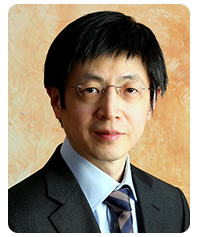 김진수 단장은 유전체 교정 분야의 선구자로서 명성을 쌓아왔다. 김진수 단장은 유전체 교정 분야의 선구자로서 명성을 쌓아왔다.
2013년 한 해 동안만 네이처 메서드(Nature Methods), 네이처 바이오테크놀로지(Nature Biotechnology) 등 세계적 권위의 저널에 4편의 논문을 게재하는 등 뛰어난 연구업적으로 세계적 석학 반열에 올라섰다. 이중 네이처 바이오테크놀로지에 발표한 논문은 2013년 국내 연구자가 발표한 54,000여 편의 논문 중에서 가장 많이 인용된 논문으로 확인되기도 했다.
1999년 생명공학 벤처기업 ㈜툴젠을 공동 설립했으며 2005년부터 서울대 화학부 교수로 재직해 오다 2014년 3월 IBS 유전체 교정 연구단 단장에 선정됐다. 서울대 학사(1987), 석사(1989)를 거쳐 미국 위스콘신-메디슨대학에서 박사학위(1994)를 받았다.
Session
Session Description
| Session Title: |
CRISPR Genome Editing in Medicine and Biotechnology
(Sponsored by the Institute for Basic Science) |
| Session Code: |
Parallel Session 1-A |
| Time/Place: |
Tuesday, June 9, 14:00-15:30
Room 101 |
| Session Outline: |
In near future, AIDS, cancer, hemophilia, and many other diseases can be treated by altering DNA sequences of patients. In addition, crops and livestock will be improved by modifying their genome sequences without inserting foreign DNA in their genomes.
Genome editing enables targeted genetic modifications in cells and whole organisms using programmable nucleases that cleave target DNA in a sequence-specific manner. Genome editing has recently been democratized by CRISPR-Cas9 nucleases that are originated from an adaptive immune system in bacteria. CRISPR nucleases have been successfully used to create genetically-modified plants and animals including non-human primates. Researchers are now applying this method to correct genetic defects in patient-derived stem and somatic cells and to create disease-resistant crops and animals.
In this session, scientists, bioethicists, and science historians will discuss on various issues associated with the CRISPR revolution. |
Session Participants
Session Participants
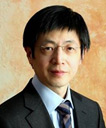
|
Producer:
Jin-Soo Kim (Professor at Seoul National University; Director of Center for Genome Editing at Institute for Basic Science)
Jin-Soo Kim is a professor at Seoul National University and Director of Center for Genome Editing at Institute for Basic Science. He has developed CRISPR and other programmable nucleases, now widely used for genome editing.
Email: jskim01@snu.ac.kr |
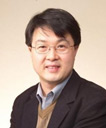
|
Moderator:
Sungook Hong (Professor, Seoul National University)
Sungook Hong is a professor of Seoul National University is a historian of science and STS scholar. He has been working on social debates over technoscientific uncertainties and risks caused by neuroscience, biotechnology, and nanotechnology.
Email: comenius@snu.ac.kr |
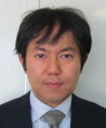
|
Speaker 1:
Tetsuya Ishii (Professor, Office of Health and Safety, Hokkaido University)
Tetsuya Ishii, PhD is a professor of Office of Health and Safety, Hokkaido University. In 2002, he joined Japan Science and Technology Agency (JST) and worked as a program officer. He worked at Center for iPS Cell Research and Application (CiRA), Kyoto University, in charge with clinical research application and also joined International Stem Cell Initiative. Currently, he is studying bioethics, focusing the relationship between society and biotechnology.
Email: tishii@general.hokudai.ac.jp |
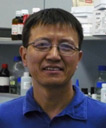
|
Speaker 2:
Xingxu Huang (Professor, School of Life Science and Technology, ShanghaiTech University)
Xingxu Huang, Ph.D. is an associate professor of School of Life Science and Technology, ShanghaiTech University. He used CRISPR nucleases to modify genome sequences of non-human primates for the first time.
Email: huangxx@shanghaitech.edu.cn |
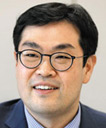
|
Speaker 3:
Doogab Yi (Professor, History and Science and Technology Studies at Seoul National University)
Doogab Yi is an assistant professor of history and science and technology studies at Seoul National University, where he teaches the history of science as well as science and the law. His recent book is The Recombinant University: Genetic Engineering and the Emergence of Stanford Biotechnology (University of Chicago Press, 2015).
Email: doogab@snu.ac.kr |
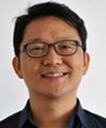
|
Speaker 4:
Dayk Jang (Professor, College of Liberal Studies, Seoul National University)
Dayk Jang is an associate professor of College of Liberal Studies at Seoul National University, where he teaches philosophy of biology as well as scientific understanding of human nature. He has been working on philosophical issues in evolutionary sciences and neuroscience. His recent book is Darwin’s Study (in Korean, 2014).
Email: djang@snu.ac.kr |
|

 뉴스센터
뉴스센터











 김진수 단장은 유전체 교정 분야의 선구자로서 명성을 쌓아왔다.
김진수 단장은 유전체 교정 분야의 선구자로서 명성을 쌓아왔다.






